Contact the coordinator
+48 75 645 2011
WhatsApp
+48 535 098 999

Contact the coordinator
+48 75 645 2011
WhatsApp
+48 535 098 999
Leave us a message
weightloss@kcmclinic.com
Weight loss surgery is a complex and life-altering procedure that should be carefully considered. It is not a quick fix or an easy way out, but rather a tool to assist individuals in their weight loss journey.
One of the most common types of weight loss surgery is gastric bypass, which involves creating a small pouch at the top of the stomach and rerouting the small intestine to connect to this pouch. This reduces the amount of food that can be consumed and also limits the absorption of calories and nutrients.
Another type of weight loss surgery is gastric sleeve surgery, where a large portion of the stomach is removed, leaving behind a smaller sleeve-shaped stomach. This procedure helps in reducing hunger and controlling portion sizes.
Weight loss surgery, also known as bariatric surgery, is a significant decision that requires careful consideration and evaluation. Determining eligibility for this procedure involves assessing various factors to ensure the best possible outcome for the patient.
One of the primary criteria considered is the individual’s body mass index (BMI). BMI is a measurement that takes into account a person’s height and weight, providing an estimate of their body fat percentage. Generally, individuals with a BMI of 40 or higher are considered eligible for weight loss surgery. However, those with a BMI between 35 and 40 may also be considered if they have obesity-related health conditions such as diabetes or high blood pressure.
Previous attempts at weight loss are another crucial factor in determining eligibility. Many individuals who consider weight loss surgery have tried various diets, exercise regimens, and lifestyle changes without achieving sustainable results, are good candidates for a weight loss surgery.
There are various compelling reasons why seeking treatment for weight loss may be necessary.
By seeking professional help for weight loss, you can ensure that you receive the appropriate guidance and support tailored to your specific needs. This will enable you to embark on a safe and effective weight loss journey, improving your overall health and quality of life. Remember, taking proactive steps towards addressing weight loss concerns is a vital aspect of maintaining a healthy lifestyle.
There are several types of weight loss surgeries, each with its unique benefits and considerations. Two popular options include:
Endoscopic Sleeve Gastroplasty, or ESG, is a minimally invasive procedure that reduces the size of the stomach using sutures. This innovative technique limits food intake while maintaining the natural digestive process, promoting gradual and sustained weight loss.
Obesity surgery, also known as bariatric surgery, encompasses a range of procedures aimed at modifying the digestive system to promote weight loss. These procedures may involve reducing the stomach’s size, rerouting the small intestine, or both. The goal is to limit food consumption and nutrient absorption, resulting in significant weight loss.
Embarking on the journey of weight loss surgery can offer a multitude of benefits that extend far beyond mere weight reduction. This transformative procedure presents a range of advantages, including:
Weight loss surgery not only helps individuals shed excess pounds but also improves overall physical health. By reducing the risk of obesity-related conditions such as diabetes, heart disease, and high blood pressure, it promotes a healthier and more active lifestyle.
The positive impact of weight loss surgery extends beyond the physical realm. Shedding excess weight can boost self-esteem and confidence, leading to improved mental well-being. Patients often experience a renewed sense of self-worth and find themselves more capable of engaging in social activities and pursuing personal goals.
Unlike traditional weight loss methods, surgery provides a long-lasting solution for individuals struggling with obesity. By altering the digestive system, it helps regulate appetite and promotes sustainable weight management, ensuring a higher chance of maintaining a healthy weight in the long run.
Weight loss surgery can significantly enhance one’s quality of life by alleviating the physical limitations and discomfort associated with obesity. Patients often report increased mobility, reduced joint pain, and improved sleep patterns, allowing them to enjoy a more active and fulfilling lifestyle.
For individuals with obesity-related medical conditions, weight loss surgery can potentially lead to a decreased reliance on medications. As weight decreases and overall health improves, patients may find themselves requiring lower doses or even eliminating certain medications altogether, resulting in substantial cost savings and improved overall well-being.
Obesity is known to reduce life expectancy due to its association with various health complications. Weight loss surgery offers a chance to reverse this trend by reducing the risk of obesity-related diseases. By achieving and maintaining a healthy weight, individuals can significantly increase their life expectancy and enjoy a longer, more fulfilling life.
Safety is of utmost importance when contemplating weight loss surgery. It is crucial to acknowledge that, similar to any surgical procedure, bariatric surgery entails inherent risks. Nevertheless, the continuous progress in medical technology and surgical techniques has substantially enhanced the safety standards of these procedures. Competent and seasoned bariatric surgeons prioritize the safety of their patients and perform comprehensive evaluations to mitigate potential risks.
The cost of weight loss surgery in UK can vary based on factors such as the type of procedure, hospital facilities, and geographical location. While cost considerations are important, it’s crucial to prioritize the expertise and reputation of the surgical team. Many insurance plans may cover weight loss surgery if specific medical criteria are met. Consulting with your healthcare provider and insurance company can provide clarity on financial aspects.
Bariatric surgery offers a transformative opportunity for individuals seeking a healthier and more fulfilling life. If you’re ready to take control of your weight and embrace lasting change, our team of skilled bariatric surgeons is dedicated to guiding you through every step of this remarkable journey. Contact us today to schedule a consultation and embark on the path to a healthier, happier you.
What is the Safest Weight Loss Surgery?
The safety of weight loss surgery depends on various factors, including your individual health status and the specific procedure. Generally, minimally invasive techniques such as Laparoscopic Gastric Sleeve and Laparoscopic Gastric Banding tend to have a lower risk profile. It’s essential to consult with a qualified bariatric surgeon who can assess your suitability for different procedures and provide personalized recommendations.
How Much Does Bariatric Surgery Cost in UK?
The cost of bariatric surgery in UK can vary based on the type of procedure, the hospital or clinic you choose, and additional factors. While cost considerations are important, it’s equally vital to prioritize the expertise and reputation of the surgical team. Many individuals find that the long-term health benefits of weight loss surgery outweigh the initial financial investment. For accurate pricing information, we recommend contacting our dedicated team or your healthcare provider.
How Safe is Bariatric Surgery in UK?
Bariatric surgery in UK is generally considered safe when performed by experienced and qualified medical professionals. As with any surgical procedure, there are inherent risks involved. However, advancements in surgical techniques, pre-operative assessments, and post-operative care have significantly improved the safety of bariatric procedures. It’s crucial to choose a reputable healthcare facility with a track record of successful surgeries and patient satisfaction.
Is Weight Loss Surgery Risky?
Like any surgical procedure, weight loss surgery carries some level of risk. However, the risk varies depending on factors such as your overall health, the type of surgery, and the expertise of the surgical team. Complications from weight loss surgery are relatively rare, and advances in medical technology and surgical techniques have further minimized these risks. A thorough evaluation by a bariatric surgeon will help determine the potential risks in your specific case and whether the benefits of the surgery outweigh them.
My research for where to have bariatric surgery led me to KCM clinic in Poland and I am forever grateful. Everyone was professional and made me feel great. Karolina was so excellent coordinating everything from start, Dr. Grzegorz Kowalski put my mind at ease and did an awesome job.
My procedure was surprisingly extra smooth... Read more
My experience of KCM has been great right from the beginning talking to Kim (My patient co-ordinator) through to surgery day and beyond.
I flew in on a Thursday and had extensive pre op tests Thursday and Friday, then had gastric sleeve surgery on the Saturday and flew home Monday. The whole process ran smoothly and...Read more
By altering the anatomy of the digestive tract, either by making the stomach smaller or bypassing a portion of the intestines, the operation results in decreased hunger and a reduced feeding capacity. The surgery is performed using a minimally invasive laparoscopic or robotic surgical technique, making the surgery less painful and quicker to recover from.
Additionally, bariatric surgery Poland guarantees an extended period of weight loss; studies have also shown that other benefits of the surgery include the treatment of diabetes, high blood pressure, and a reduction in the mortality rate of obesity from 40% to 23%. The surgery gives patients suffering from obesity the chance to enjoy a better quality of life and a longer life span. The most popular weight loss procedures performed in our hospital include:
Gastric Sleeve (GS): commonly referred to as the “sleeve”, is the laparoscopic sleeve gastrectomy of the stomach which is performed by removing about 80% of the stomach volume. Although what has left of the stomach — usually the size of a banana — retains its digestive abilities, the capacity for food intake is reduced. By taking out the portion of the stomach responsible for producing most of the hunger hormone, the feeling of hunger is decreased. Hence, the surgery affects the body’s metabolism
Roux-en Y Gastric Bypass (RYGB): The procedure is named after the French term “in the form of Y” and is one of the most common weight-loss surgeries. It involves the direct connection of a small part of the stomach to a part of the small intestine, bypassing the rest of the stomach which consequently no longer stores or digests food. The part of the small intestine which empties the bypassed stomach is then reattached to the small intestinal part emptying the small stomach about 3-4 feet downwards, resulting in the Y shape this procedure is known for. The effect of this is that the small portion of the stomach forms a little stomach pouch which limits the amount of food ingested, the ingested food then bypasses the larger part of the stomach as well as the first portion of the small bowel, resulting in reduced absorption
Laparoscopic Mini Gastric Bypass (OAGB): this procedure combines some of the attributes of gastric sleeve and gastric bypass. Here, the upper portion of the stomach is divided into an elongated gastric tube, and it is directly joined to a loop of the small intestine, completely bypassing the rest of the stomach — which is left for the production of digestive juices — and the upper part of the small intestine called the duodenum. The effect of this is that the small stomach tube limits the amount of food ingested, and the bypassed duodenum results in decreased absorption.
Intragastric Balloon: this procedure involves the placement of a silicone balloon filled with saline into the stomach. The function of the balloon is to press down on the stomach walls, giving the impression that the stomach is full. The effect of this is that thefeeling of fullness limits the amount of food consumed.

Scientific societies have guidelines that specify the eligibility for weight-loss surgery abroad. This usually begins with a BMI (Body Mass Index) of 40 or 32-35 in patients with at least two concomitant diseases (coexisting medical conditions, i.e., diabetes and hypertension).
In addition to the body mass index, it is necessary to inform the bariatric surgeon about existing medical conditions and provide a comprehensive medical history of heart disease, previous abdominal surgery, or early pregnancy.
It is also important to adhere strictly to medical advice after the surgery. Surgeons may suggest that the patient avoid strenuous activities, carbonated drinks, smoking, alcohol, cosmetic procedures, certain medication, and even pregnancy for up to 18 months after the operation.
Surgeons may also encourage certain practices that could aid the recovery process, such as protein intake for muscle development, liquids or pureed food for about three weeks after the surgery, light exercise, etc. These vary depending on the predisposition of each individual. It is therefore encouraged to consult with a doctor before and after the procedure.












It is natural that before deciding to undergo bariatric surgery, there are many questions about obesity surgery. These treatments have a long-term effect on the rest of life, however, they differ depending on the individual predisposition and characteristics of patients. For this reason, for detailed answers to the current questions, we encourage you to consult a doctor of first contact or a bariatric medicine surgeon.
Can I undergo laparoscopic surgery if I have had other abdominal surgery, a hernia or a stoma in the past?
Yes. Be sure to tell your surgeon and anaesthetist about all previous operations, especially those on the abdomen and pelvis.
Can I undergo laparoscopic surgery if I have heart disease?
Yes, but you may need a medical certificate from a Cardiologist. Bariatric surgery leads to the improvement of most problems associated with heart disease, including: high blood pressure, cholesterol, lipid problems, vascular diseases.
Can I stop some medications after surgery?
When you lose weight, you may be able to reduce or eliminate the need to take many medications for high blood pressure, heart disease, arthritis, cholesterol or diabetes. You may be able to reduce the dose or stop using antidiabetic drugs shortly after surgery. Be sure to consult with your doctor about drug withdrawal.
Do I have to quit smoking before and after surgery?
Smoking leads to a decrease in blood supply to the body’s tissues and delays wound healing. Smoking harms any organ in the body and can increase the risk of developing: stomach ulcers, heart disease, catal ity, cancer.
Will I have to undergo plastic surgery after surgery?
Most patients have loose or flabby skin after treatment, but it is often temporary, not always prolonged. You will experience many changes between 6 and 18 months after surgery. Your individual appearance after treatment depends on several things, including weight, age, genetics and whether you exercise.
Do I need to avoid caffeine and carbonated drinks after bariatric surgery?
Yes, if possible. In the first weeks after the procedure, we should avoid coffee and carbonated drinks.
What happens if I don’t take enough protein?
The body needs additional protein during the period of rapid weight loss to maintain muscle mass. Protein is also required for proper metabolism. If you do not provide enough protein in your diet, the body will take protein from the muscles and you can become weakened.
Can I drink alcohol after surgery?
Alcohol is not recommended after bariatric surgery, because it contains so-called empty calories – it does not provide adequate nutrients, and provides large amounts of calories that can be deposited in adipose tissue. Alcohol can be absorbed into the body more quickly after bariatric surgery. We recommend not to consume alcohol until minimum six months after surgery.
If I couldn’t get pregnant before the procedure, then I don’t have to worry about contraception after surgery?
An increase in fertility may occur soon after surgery. Therefore, it is important to use a barrier contraceptive method, such as a intrauterine insole or condoms and spermicide agent, so as not to get pregnant. Birth control pills are a much less effective preventive measure in patients with obesity and in the rapid weight loss phase.
Is pregnancy safe after bariatric surgery?
It is recommended to avoid pregnancy for 18-24 months after surgery. This allows you to achieve maximum weight loss and achieve stable weight. For some time after the procedure will be very limited intake of nutrients.
Where is the best place to have bariatric surgery?
If obesity treatments like dieting and exercise do not yield desired results,
then a weight loss surgery abroad might be the solution. Poland is a leading
destination for weight loss surgery abroad because of its specialised
bariatric treatment clinics and laparoscopic technology. If you want to get
bariatric surgery done in Europe, weight loss surgery Poland is the best
place to go.
What is the cheapest weight loss surgery?
The Intragastric Balloon method is most affordable because it only requires
fitting a balloon into your stomach for turgidity. Poland is a popular option
for pocket-friendly, and effective weight-loss surgeries as some facilities in
the country give quick and free consultations to patients.
What is the easiest weight loss surgery?
The Intragastric Balloon is the easiest weight loss surgery available, thanks
to its simplicity; the patient is sedated while the balloon is inserted through
the oesophagus. The non-invasiveness also guarantees quick recovery and
allows you to resume your usual activities in record time.
By altering the anatomy of the digestive tract, either by making the stomach smaller or bypassing a portion of the intestines, the operation results in decreased hunger and a reduced feeding capacity. The surgery is performed using a minimally invasive laparoscopic or robotic surgical technique, making the surgery less painful and quicker to recover from.
Additionally, bariatric surgery Poland guarantees an extended period of weight loss; studies have also shown that other benefits of the surgery include the treatment of diabetes, high blood pressure, and a reduction in the mortality rate of obesity from 40% to 23%. The surgery gives patients suffering from obesity the chance to enjoy a better quality of life and a longer life span. The most popular weight loss procedures performed in our hospital include:
Gastric Sleeve (GS): commonly referred to as the “sleeve”, is the laparoscopic sleeve gastrectomy of the stomach which is performed by removing about 80% of the stomach volume. Although what has left of the stomach — usually the size of a banana — retains its digestive abilities, the capacity for food intake is reduced. By taking out the portion of the stomach responsible for producing most of the hunger hormone, the feeling of hunger is decreased. Hence, the surgery affects the body’s metabolism
Roux-en Y Gastric Bypass (RYGB): The procedure is named after the French term “in the form of Y” and is one of the most common weight-loss surgeries. It involves the direct connection of a small part of the stomach to a part of the small intestine, bypassing the rest of the stomach which consequently no longer stores or digests food. The part of the small intestine which empties the bypassed stomach is then reattached to the small intestinal part emptying the small stomach about 3-4 feet downwards, resulting in the Y shape this procedure is known for. The effect of this is that the small portion of the stomach forms a little stomach pouch which limits the amount of food ingested, the ingested food then bypasses the larger part of the stomach as well as the first portion of the small bowel, resulting in reduced absorption
Laparoscopic Mini Gastric Bypass (OAGB): this procedure combines some of the attributes of gastric sleeve and gastric bypass. Here, the upper portion of the stomach is divided into an elongated gastric tube, and it is directly joined to a loop of the small intestine, completely bypassing the rest of the stomach — which is left for the production of digestive juices — and the upper part of the small intestine called the duodenum. The effect of this is that the small stomach tube limits the amount of food ingested, and the bypassed duodenum results in decreased absorption.
Intragastric Balloon: this procedure involves the placement of a silicone balloon filled with saline into the stomach. The function of the balloon is to press down on the stomach walls, giving the impression that the stomach is full. The effect of this is that thefeeling of fullness limits the amount of food consumed.

Scientific societies have guidelines that specify the eligibility for weight-loss surgery abroad. This usually begins with a BMI (Body Mass Index) of 40 or 32-35 in patients with at least two concomitant diseases (coexisting medical conditions, i.e., diabetes and hypertension).
In addition to the body mass index, it is necessary to inform the bariatric surgeon about existing medical conditions and provide a comprehensive medical history of heart disease, previous abdominal surgery, or early pregnancy.
It is also important to adhere strictly to medical advice after the surgery. Surgeons may suggest that the patient avoid strenuous activities, carbonated drinks, smoking, alcohol, cosmetic procedures, certain medication, and even pregnancy for up to 18 months after the operation.
Surgeons may also encourage certain practices that could aid the recovery process, such as protein intake for muscle development, liquids or pureed food for about three weeks after the surgery, light exercise, etc. These vary depending on the predisposition of each individual. It is therefore encouraged to consult with a doctor before and after the procedure.












It is natural that before deciding to undergo bariatric surgery, there are many questions about obesity surgery. These treatments have a long-term effect on the rest of life, however, they differ depending on the individual predisposition and characteristics of patients. For this reason, for detailed answers to the current questions, we encourage you to consult a doctor of first contact or a bariatric medicine surgeon.
Can I undergo laparoscopic surgery if I have had other abdominal surgery, a hernia or a stoma in the past?
Yes. Be sure to tell your surgeon and anaesthetist about all previous operations, especially those on the abdomen and pelvis.
Can I undergo laparoscopic surgery if I have heart disease?
Yes, but you may need a medical certificate from a Cardiologist. Bariatric surgery leads to the improvement of most problems associated with heart disease, including: high blood pressure, cholesterol, lipid problems, vascular diseases.
Can I stop some medications after surgery?
When you lose weight, you may be able to reduce or eliminate the need to take many medications for high blood pressure, heart disease, arthritis, cholesterol or diabetes. You may be able to reduce the dose or stop using antidiabetic drugs shortly after surgery. Be sure to consult with your doctor about drug withdrawal.
Do I have to quit smoking before and after surgery?
Smoking leads to a decrease in blood supply to the body’s tissues and delays wound healing. Smoking harms any organ in the body and can increase the risk of developing: stomach ulcers, heart disease, catal ity, cancer.
Will I have to undergo plastic surgery after surgery?
Most patients have loose or flabby skin after treatment, but it is often temporary, not always prolonged. You will experience many changes between 6 and 18 months after surgery. Your individual appearance after treatment depends on several things, including weight, age, genetics and whether you exercise.
Do I need to avoid caffeine and carbonated drinks after bariatric surgery?
Yes, if possible. In the first weeks after the procedure, we should avoid coffee and carbonated drinks.
What happens if I don’t take enough protein?
The body needs additional protein during the period of rapid weight loss to maintain muscle mass. Protein is also required for proper metabolism. If you do not provide enough protein in your diet, the body will take protein from the muscles and you can become weakened.
Can I drink alcohol after surgery?
Alcohol is not recommended after bariatric surgery, because it contains so-called empty calories – it does not provide adequate nutrients, and provides large amounts of calories that can be deposited in adipose tissue. Alcohol can be absorbed into the body more quickly after bariatric surgery. We recommend not to consume alcohol until minimum six months after surgery.
If I couldn’t get pregnant before the procedure, then I don’t have to worry about contraception after surgery?
An increase in fertility may occur soon after surgery. Therefore, it is important to use a barrier contraceptive method, such as a intrauterine insole or condoms and spermicide agent, so as not to get pregnant. Birth control pills are a much less effective preventive measure in patients with obesity and in the rapid weight loss phase.
Is pregnancy safe after bariatric surgery?
It is recommended to avoid pregnancy for 18-24 months after surgery. This allows you to achieve maximum weight loss and achieve stable weight. For some time after the procedure will be very limited intake of nutrients.
Where is the best place to have bariatric surgery?
If obesity treatments like dieting and exercise do not yield desired results,
then a weight loss surgery abroad might be the solution. Poland is a leading
destination for weight loss surgery abroad because of its specialised
bariatric treatment clinics and laparoscopic technology. If you want to get
bariatric surgery done in Europe, weight loss surgery Poland is the best
place to go.
What is the cheapest weight loss surgery?
The Intragastric Balloon method is most affordable because it only requires
fitting a balloon into your stomach for turgidity. Poland is a popular option
for pocket-friendly, and effective weight-loss surgeries as some facilities in
the country give quick and free consultations to patients.
What is the easiest weight loss surgery?
The Intragastric Balloon is the easiest weight loss surgery available, thanks
to its simplicity; the patient is sedated while the balloon is inserted through
the oesophagus. The non-invasiveness also guarantees quick recovery and
allows you to resume your usual activities in record time.
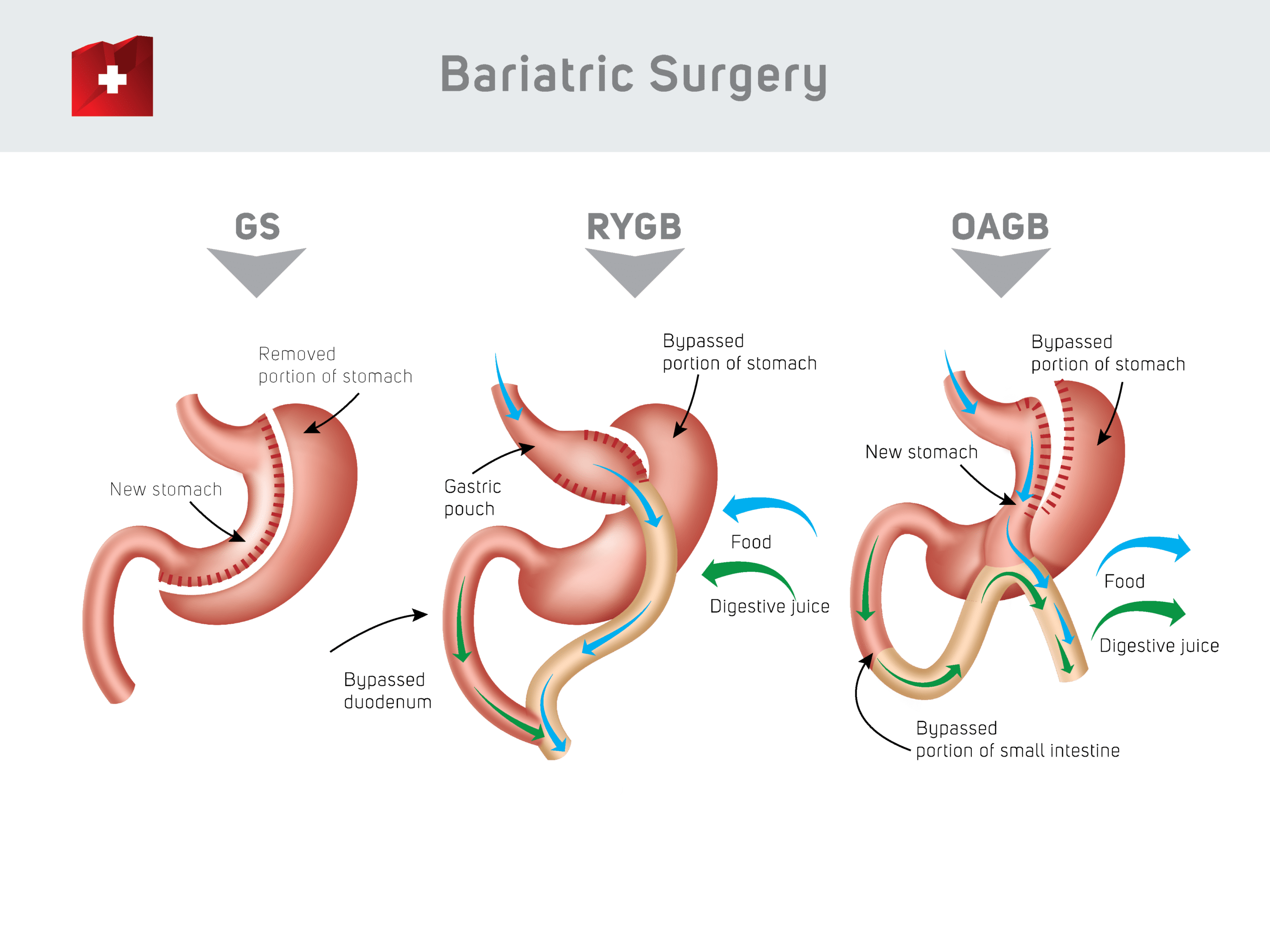
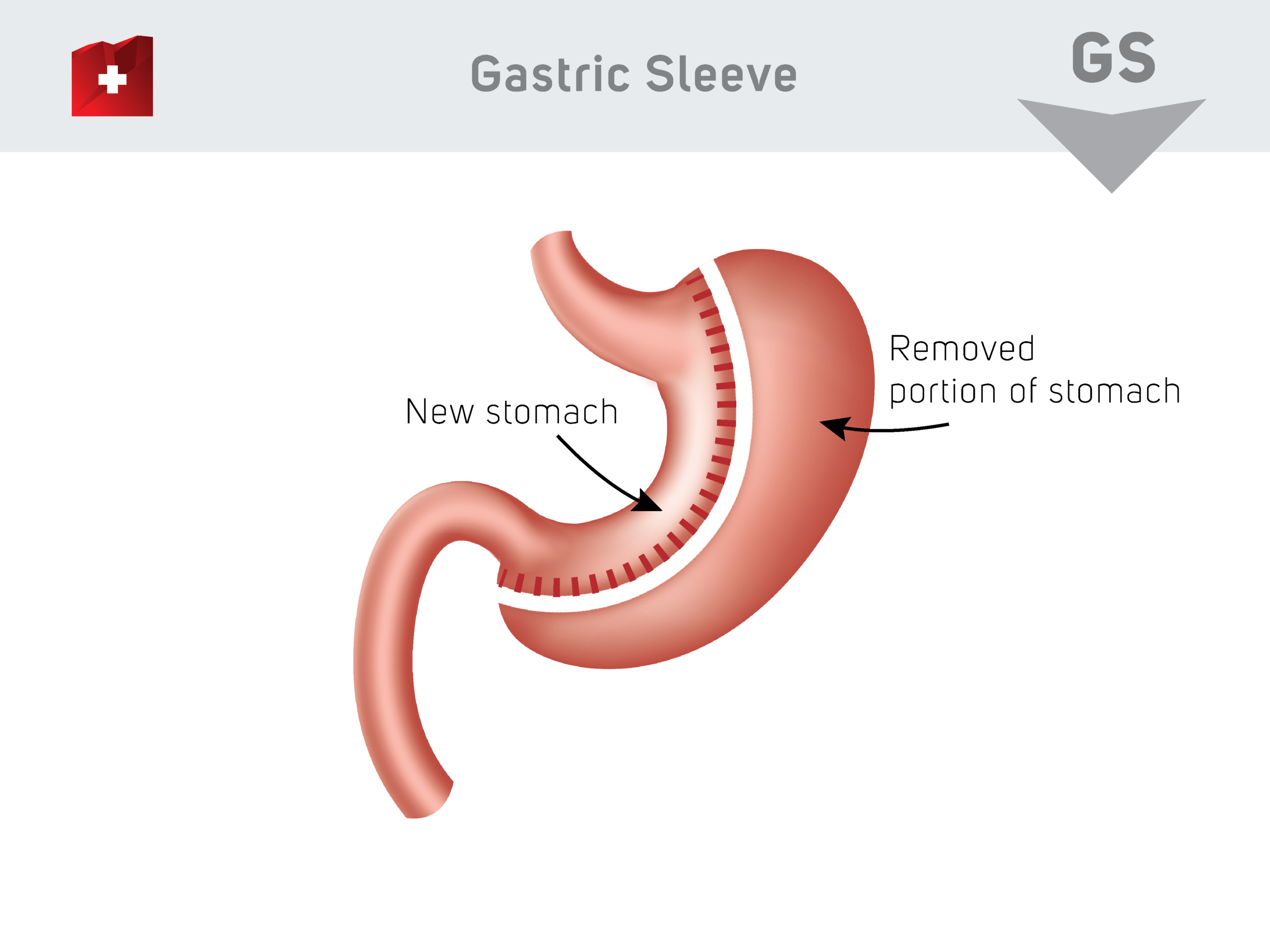
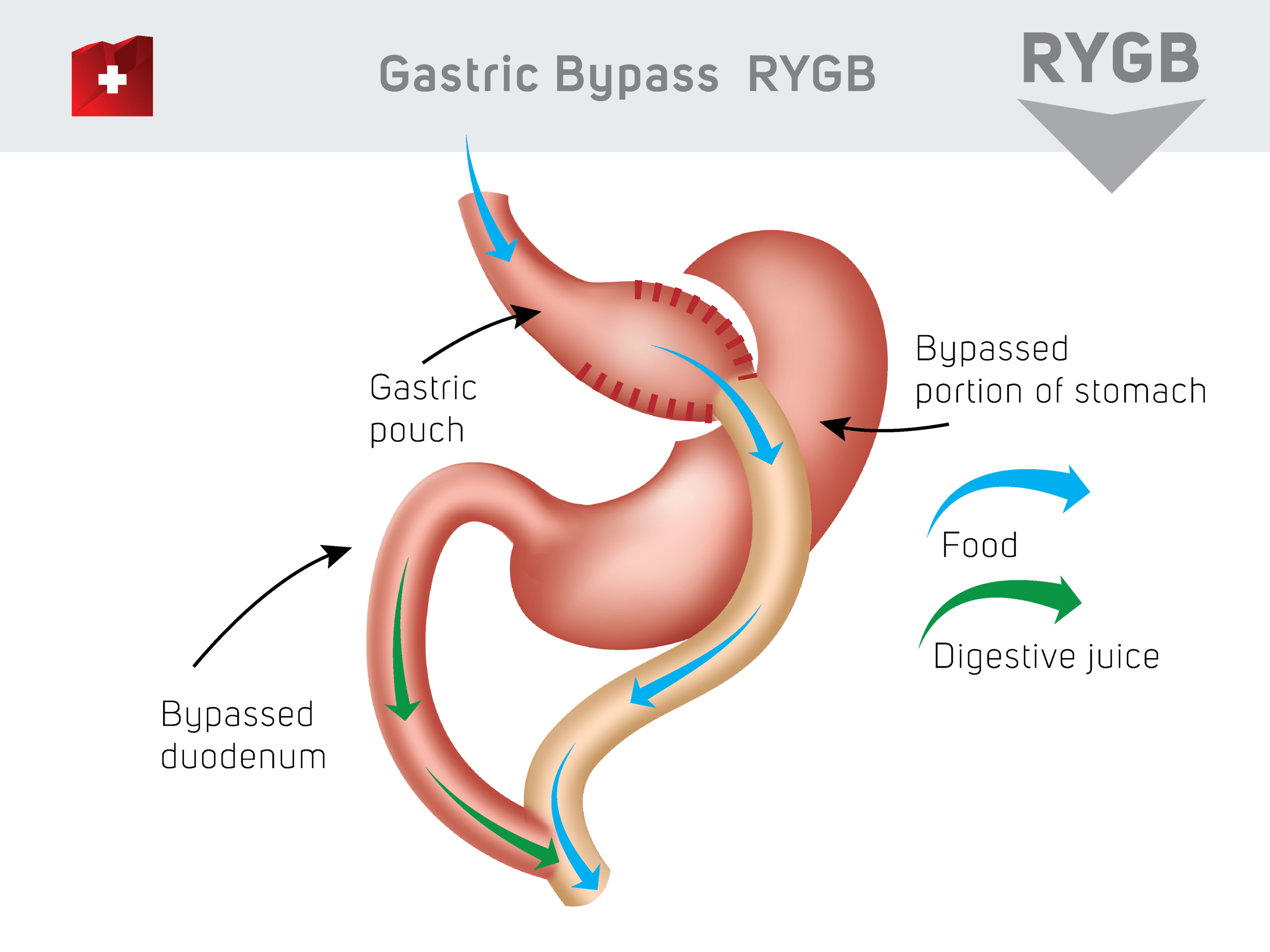
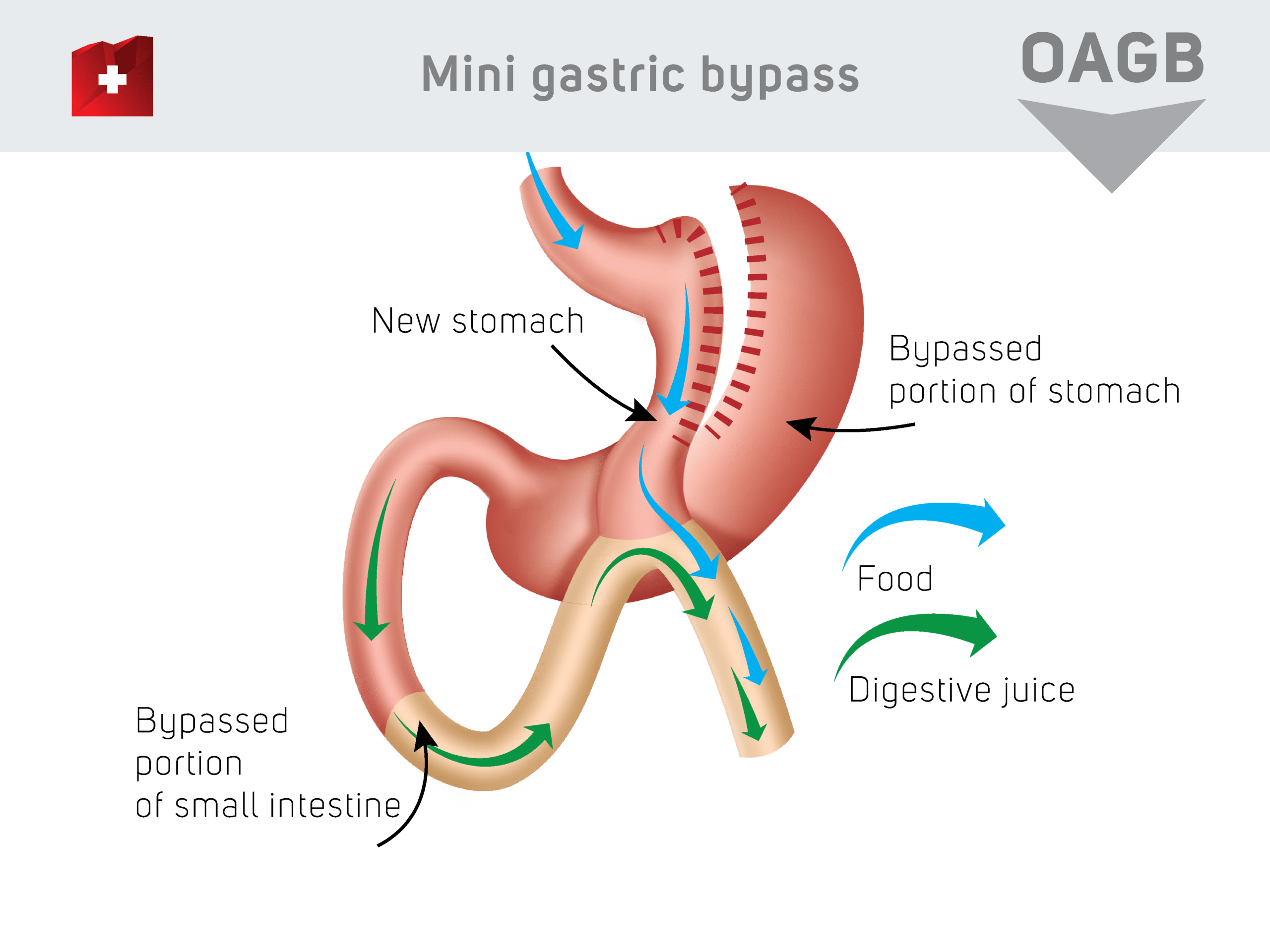
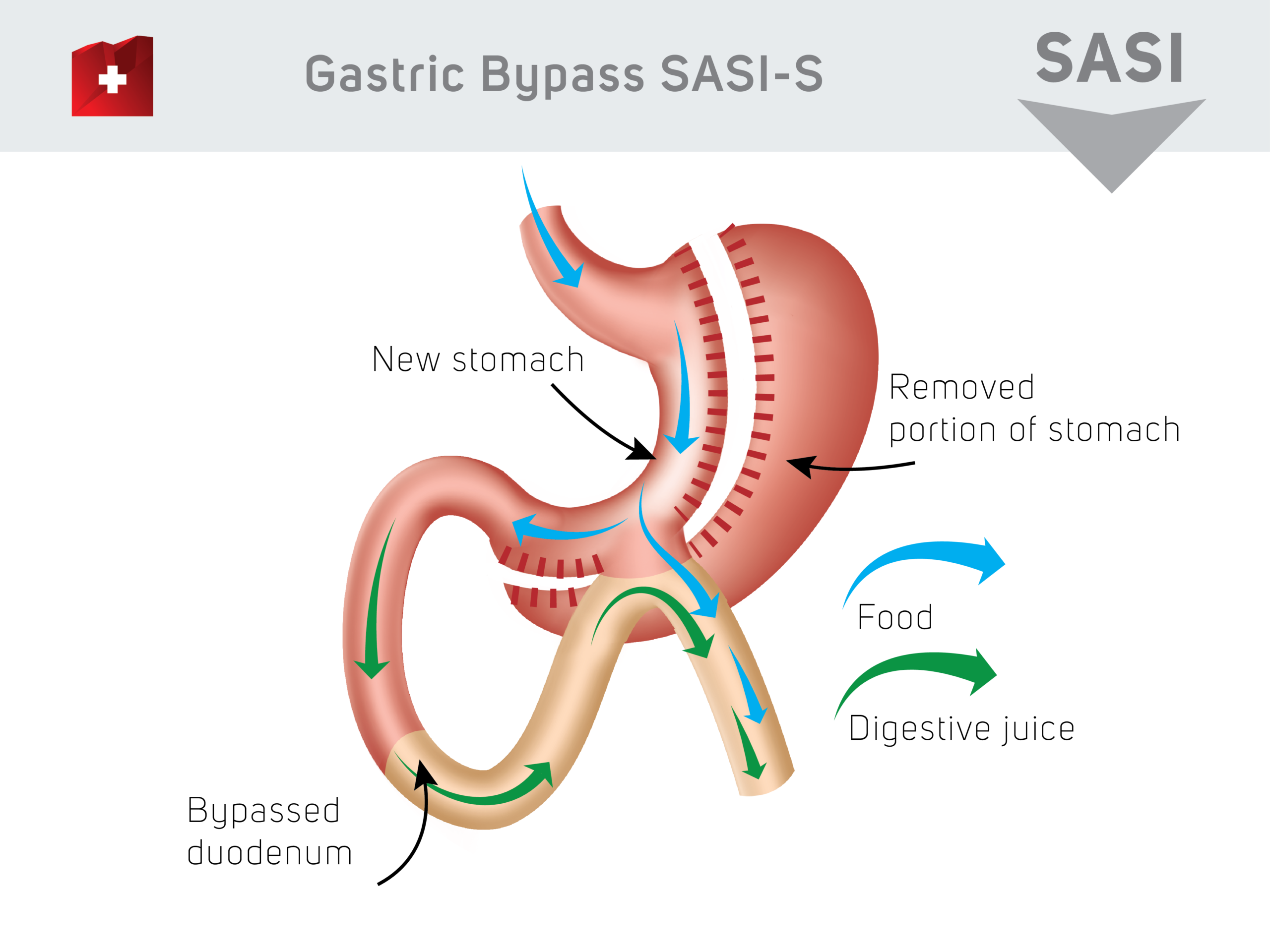
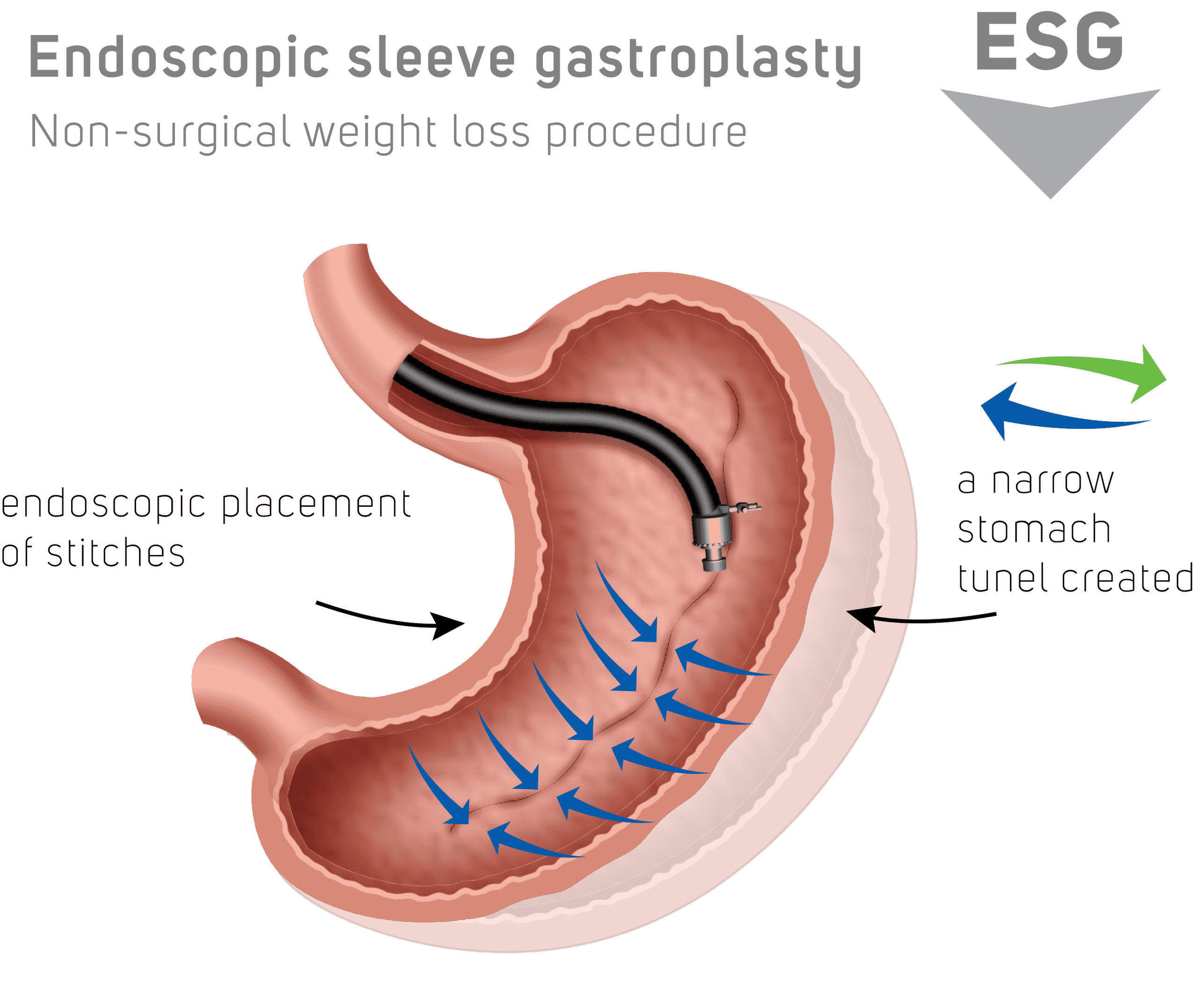
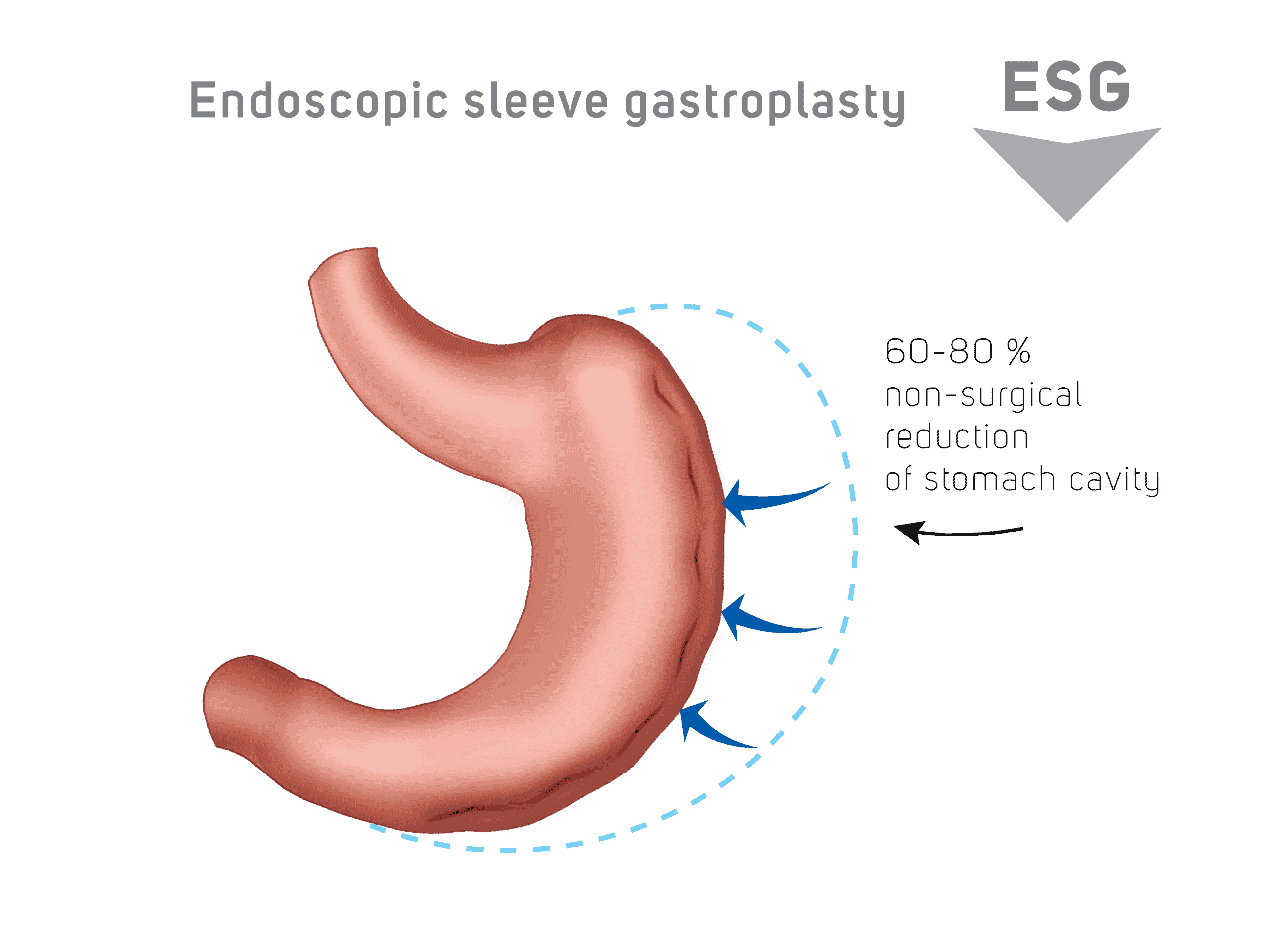
Contact the coordinator
+48 75 645 2011
WhatsApp
+48 535 098 999
Leave us a message
weightloss@kcmclinic.com
NON-INVASIVE TREATMENT OF OBESITY
Send Request
Register
Visits, hospital procedures
Bariatric Surgery Center
Plastic Surgery Center
Spine Surgery Center
Dental Clinic
OMEGA Imaging Diagnostic Center
Work hours
KCM Clinic Wrocław
Chat KCM Clinic
Locations
KCM Clinic Jelenia Góra
KCM Clinic Wrocław
Parking